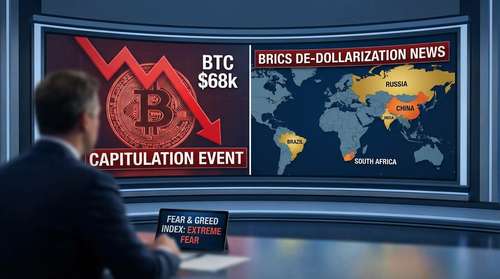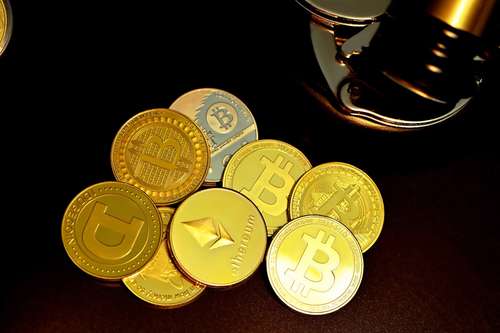Highlights:
- The IMF recommends El Salvador to narrow its Bitcoin law amid loan negotiations.
- The IMF expresses concerns over the economic risks tied to Bitcoin adoption.
- El Salvador’s response may impact its financial stability and international support.
IMF Recommendations and Concerns
The International Monetary Fund (IMF) is urging El Salvador to review and scale back its Bitcoin law as negotiations for a new lending program continue.
On Tuesday, October 3, IMF Director of Communications Julie Kozack highlighted the ongoing talks between IMF officials and Salvadoran representatives. The focus is on finding solutions to stabilize the economy, implement reforms, and promote sustainable growth.
Kozack stated that the IMF’s primary recommendation is to narrow the scope of the El Salvador Bitcoin law. She noted that this change is crucial for strengthening the regulatory framework and managing risks associated with cryptocurrency use.
"Addressing risks arising from Bitcoin is a key element of these discussions," Kozack said, underlining the need for tighter controls and greater transparency.
Since El Salvador adopted Bitcoin as legal tender in September 2021, the IMF has raised concerns about the volatility of cryptocurrency and its potential impact on the nation’s financial stability.
The agency’s current recommendations aim to reduce these risks, encouraging a more controlled and secure approach to cryptocurrency legislation.
Economic Implications of the Bitcoin Initiative
El Salvador's move to embrace Bitcoin has been met with mixed reactions, both domestically and internationally. While the country's economy has shown positive growth, including a GDP increase of over 10% and a reduction in crime rates, the IMF remains wary of the long-term economic implications of the El Salvador Bitcoin law.
The organization stressed that, despite these successes, Bitcoin’s volatility could pose risks to the country's financial system and international standing.
In the ongoing negotiations, the IMF emphasized that adherence to its recommendations is vital for ensuring a stable economic environment. This approach, they argued, could foster a more predictable market, attract foreign investment, and build confidence among international partners.
The IMF has pointed out that if El Salvador aligns with these recommendations, it could serve as a model for other nations interested in integrating cryptocurrencies into their financial systems without compromising economic stability.
Kozack also mentioned El Salvador's 2025 budget proposal during her briefing, noting that it is a positive step toward improving public finances. She explained that the proposal includes measures aimed at controlling spending and strengthening governance, aligning with the IMF's broader goals of economic stabilization.
A Mixed Response from the Bitcoin Community
While the IMF maintains its cautious stance, the Salvadoran government and Bitcoin supporters defend the country’s adoption of the cryptocurrency.
President Nayib Bukele remains a vocal advocate for the initiative, citing numerous economic benefits, including a significant boost in tourism and a notable decline in crime rates.
VanEck’s head of digital assets research, Mathew Sigel, criticized the IMF for what he described as "holding El Salvador hostage over Bitcoin." Sigel praised President Bukele's efforts and the positive economic changes since Bitcoin's adoption, urging the president to stand firm in his vision for the country.
"This remarkable transformation should be celebrated, not hindered," he said, pointing out that El Salvador’s economy has improved significantly.
However, despite these endorsements, the IMF remains firm in its position. They stressed that for El Salvador to secure international financial assistance and maintain long-term economic growth, the government must adhere to IMF recommendations, particularly in the areas of cryptocurrency legislation and economic governance.
Final Note
As El Salvador continues its negotiations with the IMF, the outcome of these discussions could have significant ramifications for the country’s financial stability and its approach to Bitcoin.
The Salvadoran government faces a critical decision: either align with the IMF’s recommendations for a more controlled cryptocurrency framework or proceed with its current policies, risking the stability of its financial system.




